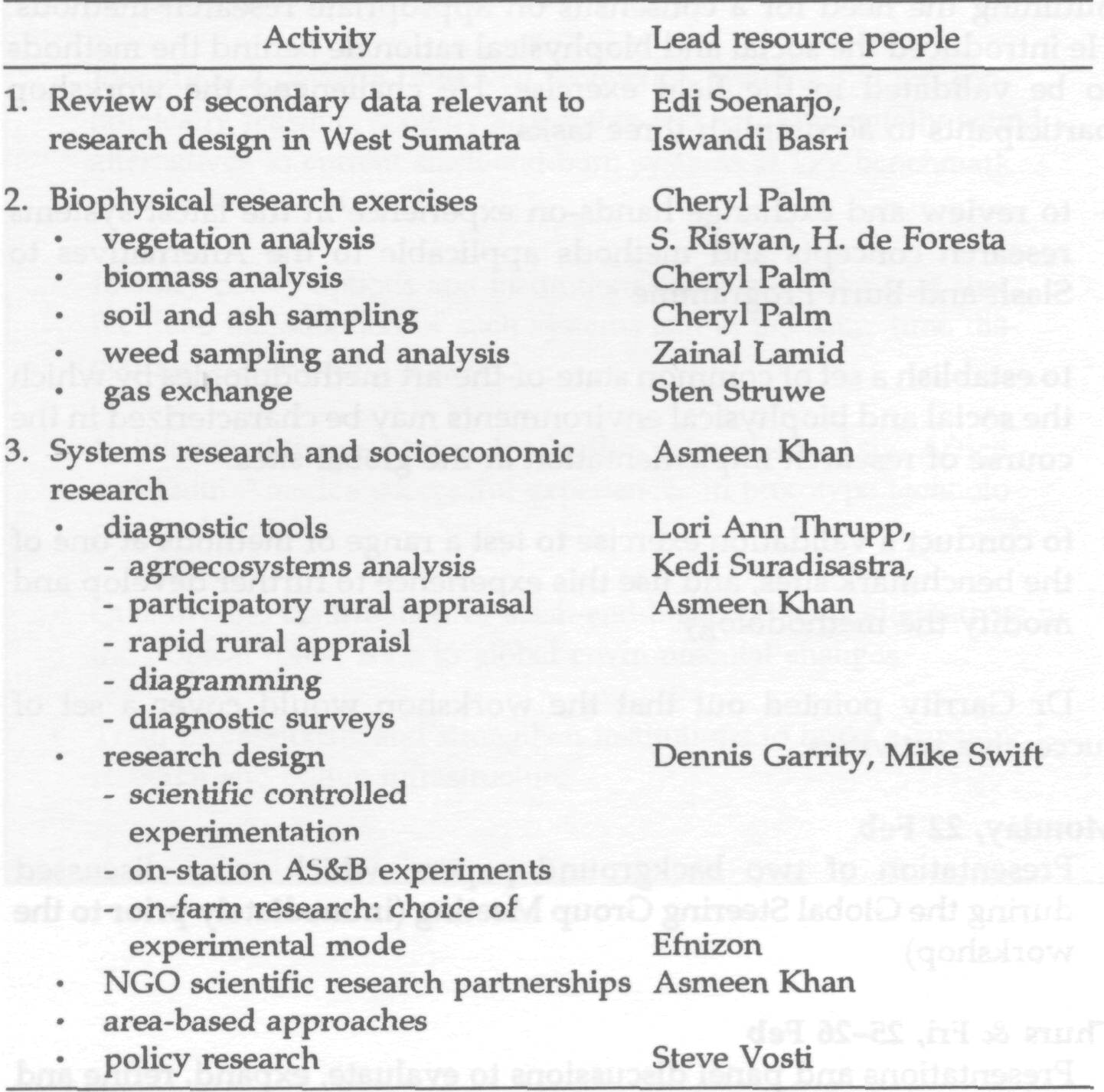
An e-publication by the World Agroforestry Centre
ALTERNATIVES TO SLASH-AND-BURN: a global initiative

 |
An e-publication by the World Agroforestry Centre |
|
ALTERNATIVES TO SLASH-AND-BURN: a global initiative |
|
|
Workshop Objectives Dr Dennis Garrity (ICRAF) presented the objectives of the workshop, outlining the need for a consensus on appropriate research methods. He introduced the social and biophysical rationale behind the methods to be validated in the field exercise. He challenged the workshop participants to accomplish three tasks:
Dr Garrity pointed out that the workshop would cover a set of successive activities: Monday, 22 Feb Thurs & Fri, 25-26 Feb Sat 27 Feb-8 Mar
This document reports on the content of the workshop and the field exercise in West Sumatra. The major points raised in the exercises are covered. The appendices contain additional background material regarding the field exercises and papers presented during the course of the workshop (table 1).

Output from this global workshop will include this summary workshop report, which covers the workshop process, conclusions and future directions with examples from the field exercises, and a handbook on methodology guidelines for research on alternatives to slash-and-burn. These two documents will be prepared by ICRAF with assistance from TSBF and IFPRI. Nationally and regionally, the initial outputs will be a summary report on the site selection process in each country, prepared by the site selection team. A preliminary characterization of each selected site will then be prepared. |